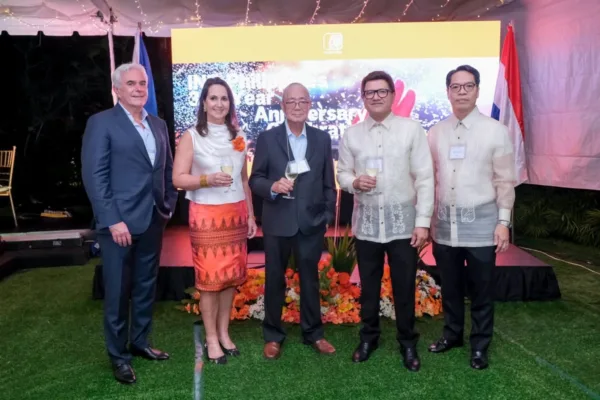The Bangko Sentral ng Pilipinas (BSP) has announced recently the selection of Hyperledger Fabric as the distributed ledger technology (DLT) for its wholesale Central Bank Digital Currency (CBDC) pilot project: Project Agila, formerly known as “Project CBDCPh.”
Project Agila aims to orient the BSP and participating financial institutions on CBDC technology solutions that have the potential to enhance the country’s large-value payment system.

Poster showing the BSP’s Project Agila (IMAGE CREDIT: www.bsp.gov.ph)
With assistance from select financial institutions, the BSP decided on DLT as this technology allows data and transactions to be recorded, shared, and synchronized across a distributed network of different participants.
This would be a useful mechanism for testing Project Agila’s use case scenario of enabling inter-institutional fund transfers even during off-business hours (i.e., evenings, weekends, and holidays) or when PhilPaSS Plus is unavailable.
Hyperledger Fabric was selected through a rigorous process that included system demonstrations, walkthrough procedures, and a scoring system, covering the systems’ access, security, 24/7 availability, interoperability, and programmability.
CBDCs are a form of digital money denominated in the national unit of account and are direct liabilities of the central bank. Wholesale CBDCs may be issued to commercial banks and other financial institutions to settle interbank payments, securities transactions, and cross-border payments, among others.
“By the end of Project Agila, the pilot participants are expected to have a clearer understanding of CBDC technology and be able to assess the capability of wholesale CBDCs to foster advancements in the large-value payment system,” BSP Governor Eli M. Remolona, Jr. said in a media advisory.
“The results of the assessment are seen to guide the BSP and the industry as a whole on a possible launch of wholesale CBDCs in the Philippines,” he added.
Participating financial institutions in this project are BDO Unibank, Inc., China Banking Corp., Land Bank of the Philippines, Rizal Commercial Banking Corporation, Union Bank of the Philippines, and Maya Philippines, Inc.
Meanwhile, observing financial institutions for succeeding stages are Citibank N. A. Manila, China Bank Savings, Wealth Development Bank Corporation, and SeaBank Philippines, Inc.
After the selection of the technology for the project, participants will test the use of wholesale CBDC technology alongside PhilPaSS Plus in a sandbox environment.
“With the goal of further enhancing the efficiency and safety of the national payment system, we will use learnings from the project as input for crafting BSP’s wholesale CBDC project roadmap,” the BSP governor added.
The BSP also collaborated with multilateral organizations, such as the International Monetary Fund and the Bank for International Settlements Innovation Hub, on the technical, risk management, and governance aspects of the pilot CBDC project.








